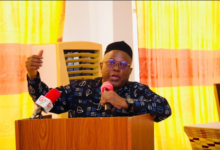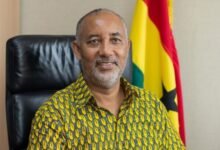UniMAC (GIJ) holds public lecture on hate speech, fake news

A barrister-at-law from Northern Ireland, Dr Venkat Lyer, has asserted that the regulation of hate speech through criminal law will not be possible.
This, according to Dr Lyer was due to reasons such as the definition of hate speech as individuals hold different view point on it, identification of its dangers, and cultural sensitivity.
Dr Lyer made the assertion while speaking at a public lecture organised by the University of Media, Art and Culture Ghana Institute of Journalism (UniMAC-GIJ) yesterday on the topic, “The Legal Regulation of Hate Speech, Fake News. Is it desirable? Is it Possible?”
The public lecture also provided a platform for issues related to hate speech, and fake news to be discussed as calls for it’s regulation across the world intensify.
According to Dr Lyer although calls for the regulation of hate speech was in the right direction, it was important to consider its potential effect on the freedom of speech.
In furtherance, he said “merely causing offences should not be a ground for banning hate speech because there are some that lead to a positive effect.”
To address the issue, Dr Lyer emphasised the need to resort to formal and informal education, while ensuring that ethical principles were strictly adhered to.
He also underscored the need to provide adequate protection for judges who interpret the law about hate speech which differs from various countries across the world.
Moreover, Dr Lyer urged anchors of television and radio programmes to try and tame panellists, individuals who turn up for discussions or allow for the opposite viewpoint to be heard when the issue of hate speech was realised.
He also entreated television and radio anchors to be careful not to make comments that may harm their audience about their race, culture, and ethnicity by adhering to ethical standards.
Although there were countries that had enacted laws on fake news, Dr Lyer said criminalising and having laws that banished it was not the best as there were different understandings of what fake news was and could undermine freedom of speech.
“Judges need to be careful to ensure that people are not convicted unfairly when it comes to the interpretation of the law with regards to fake news,” Dr Lyer added.
The Barrister-at-Law from Northern Ireland further noted that there was the need to avoid self-censorship as many individuals were afraid of speaking or sharing their opinions on issues for fear of being sanctioned or penalised.
The chairperson, an academic and a former Supreme Court Judge, Ghana and The Gambia, Justice Kofi Samuel Date-Bah, in his closing remarks said “addressing the issue of hate speech involves a process of discussion, taking into account the basics to arrive at a conclusion which reflects our culture and does not defeat the freedom of speech.”







